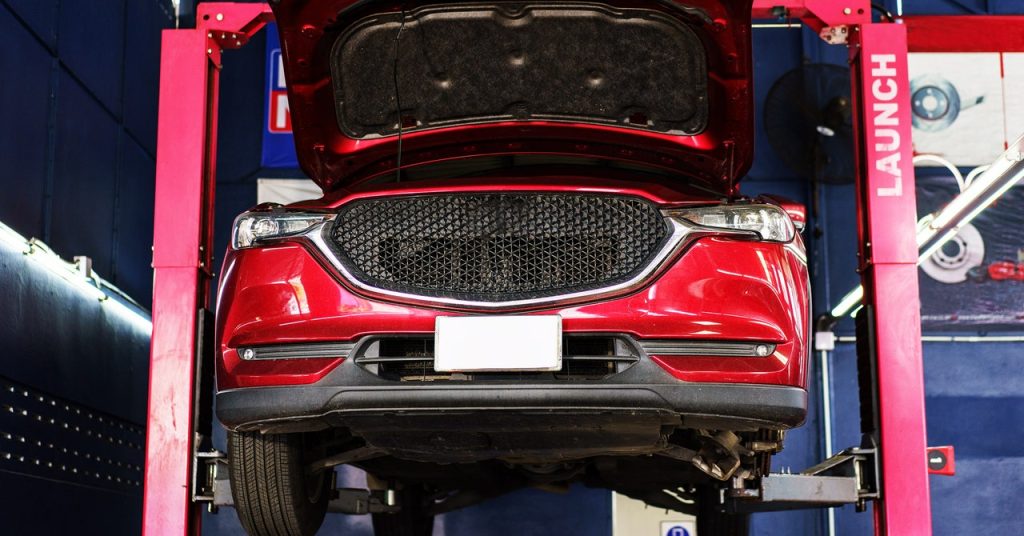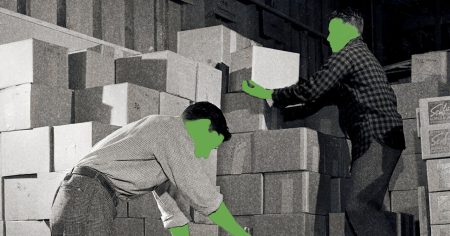Many repair shops, especially those who opt in and pay to be part of those certified networks, say they have no trouble finding the information they need to fix cars, even before this week’s agreement. Michael Bradshaw, vice president of K & M Collision in Hickory, North Carolina, and vice chair of the Society of Collision Repair Specialists, one of the groups that signed the new agreement, says his shop pays to keep up with 30 automaker certification programs, including for Kia, General Motors, Bentley, and Rivian.
In a way, Bradshaw agrees with the right-to-repair advocates: This week’s agreement doesn’t give him anything he didn’t already have. “If there’s data out there, and repair information, we’ve always been able to get that,” Bradshaw says. But he disagrees that it’s a problem that repairers must pay, sometimes dearly, to get the tools, certifications, and information that allow them to fix cars.
Bradshaw thinks it’s reasonable that he must pay for automakers’ certification programs, because developing car technology—and the documentation needed to repair it—costs the carmaker plenty of money. He’s willing to shell out whatever is needed to make a safe and effective repair. “If it was a situation where there was no charge for the access, you’re going to see that the information is going to suffer,” he says, because automakers will have less incentive to devote resources to creating clear information for repairers. “The businesses that have trouble paying for the data that’s needed are the same businesses that are not investing in training or equipment.”
Other repairers worry that without an industry-wide overhaul that forces automakers to standardize and open up their data, car companies will find ways to limit access to repair information, or push customers towards their own dealership networks to boost profits. They say that if auto owners had clear and direct ownership over the data generated by their vehicles—without the involvement of automakers’ specialized tools or systems—they could use it themselves to diagnose and repair a car, or authorize the repair shop of their choice to do the work. “My fear, if no one gives some stronger guidelines, is that I know automakers are going to monetize car data in a way that’s unaffordable for us to gain access,” says Dwayne Myers, co-owner of Dynamic Automotive, an auto repair business with several locations in Maryland.
“You have to think not only about what the situation is now, but what the situation will be five or 10 years hence,” says Roberts, the right-to-repair advocate. “It’s easier to address this now, in the early days.”
Perhaps by design, the new agreement appeared just ahead of a hearing on right to repair by a US House of Representatives subcommittee on intellectual property and the internet. A bipartisan group of representatives have already introduced bills on the topic.
The hearing follows national wrangling over a Massachusetts law passed by a 2020 ballot measure that gave state car owners firmer control over the data generated by their cars. The Alliance for Automotive Innovation sued the state over the law, preventing lawmakers from enforcing it, and a judge has yet to decide the case. But last month, the Massachusetts attorney general announced she would begin to penalize automakers that withheld data for not complying with the rule. Days later, the US Department of Transportation warned automakers not to comply with the Massachusetts law, citing concerns it would open vehicles to hacking. The letter appeared to contradict the Biden administration’s prior commitments to right-to-repair issues.
Brian Weiss, a spokesperson for the Alliance, declined to comment on the Massachusetts law, citing the ongoing litigation. But how or whether the new agreement will affect other states’ right-to-repair policies is up to policymakers, he says. It commits the trade groups who signed to push for federal rules defining right to repair and against state legislation, which could create a patchwork of laws with different obligations to DIYers or independent repairers. That echoes an agreement signed earlier this year by tractor maker John Deere and a major agricultural trade group, which advocates said failed to give farmers clear access to the tools and software needed to fix their farm equipment.
Myers, the Maryland independent repairer, says that allowing customers to own their car’s data today would, first and foremost, “give them the right to choose where they get their car fixed.” But he also has his eye on the future. “Down the road, we will find out what automakers are collecting,” he says—and why. He’d rather establish car owners’ right to control that information now, before they discover too late that it’s being used in ways they don’t like.
Read the full article here









